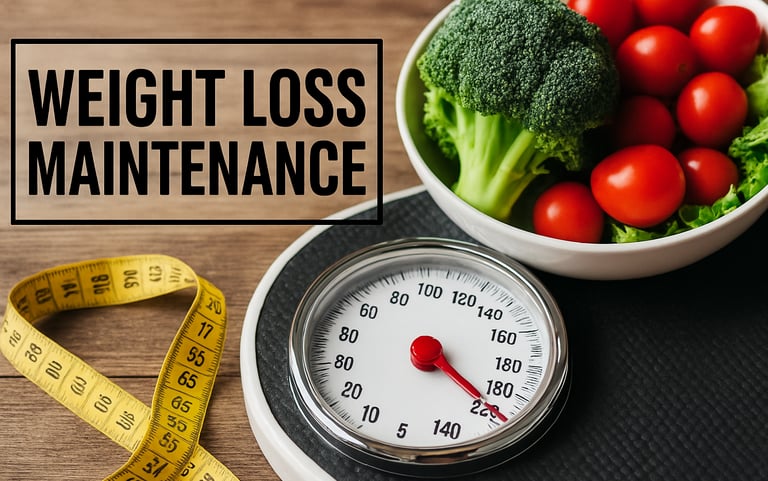Storysmith | • True Stories AND Creative Inspiration | Follow Me




Keeping it off once you've lost it
Reaching a target weight is a significant achievement, a testament to dedication and hard work. It's a moment to celebrate, but it also marks a new, equally important phase: the journey of maintenance. Many individuals find that keeping the weight off can be as challenging, if not more so, than losing it in the first place. The good news is that by shifting your mindset and adopting sustainable strategies, you can successfully navigate this transition and prevent the frustrating cycle of regaining lost weight.
The most crucial shift is moving away from the idea of being "on a diet" to embracing a sustainable lifestyle. Dieting often implies a temporary period of restriction, but true maintenance means integrating healthy habits into your everyday life permanently. This isn't about deprivation; it's about building a balanced, enjoyable way of living that supports your new weight.
Continued mindful eating is paramount. This involves paying attention to your body's hunger and fullness cues, savoring your meals, and being aware of why you're eating. It means not reverting to old habits of mindless snacking or overeating portions. While you might have more flexibility with food choices than during a strict weight loss phase, the core principles of nutritious, whole foods should remain central. Focus on balanced meals rich in lean proteins, plenty of fruits and vegetables, and complex carbohydrates to keep you feeling satisfied and energized.
Regular physical activity remains a cornerstone of successful weight maintenance. While walking is wonderful, exploring other forms of movement can keep things interesting and engage different muscle groups. This could involve cycling, swimming, dancing, strength training, or joining a sports team. The goal is to find activities you genuinely enjoy, making exercise a sustainable and joyful part of your routine rather than a chore. Consistency is more important than intensity; aim for regular movement most days of the week.
Consistent monitoring, without becoming obsessive, can be a helpful tool. Regularly weighing yourself (perhaps once a week) can provide early warning signs if your weight starts to creep up, allowing you to make small adjustments before minor fluctuations become significant. Journaling your food intake occasionally or simply reflecting on your eating patterns can also offer valuable insights. This isn't about strict counting forever, but about staying attuned to your body and habits.
It's also vital to develop strategies for dealing with setbacks. Weight fluctuations are normal, and life happens. There will be holidays, social events, and stressful periods where your eating or activity might go off track. The key is to view these not as failures, but as temporary deviations. Instead of giving up, acknowledge the slip, learn from it, and gently guide yourself back to your healthy routines. Self-compassion is crucial; avoid self-blame and focus on getting back on track rather than dwelling on perceived mistakes.Beyond food and exercise,
Prioritizing sleep and managing stress are often overlooked but incredibly important for weight maintenance. Poor sleep can disrupt hormones that regulate appetite and metabolism, while chronic stress can lead to emotional eating and weight gain. Practices like mindfulness, meditation, and ensuring adequate rest contribute significantly to your body's ability to maintain a healthy weight
Finally, remember that you don't have to navigate this journey alone. Seeking support from a healthcare professional, a registered dietitian, a fitness coach, or a supportive community can provide invaluable guidance, accountability, and encouragement. They can offer personalized advice and help you troubleshoot challenges as they arise.
Maintaining weight is a long-term journey, not a destination. It requires patience, self-awareness, and a continuous commitment to nurturing your well-being. By embracing these strategies, you can build a sustainable, healthy lifestyle that allows you to enjoy the benefits of your hard-earned success for years to come.

